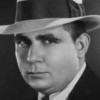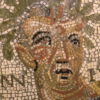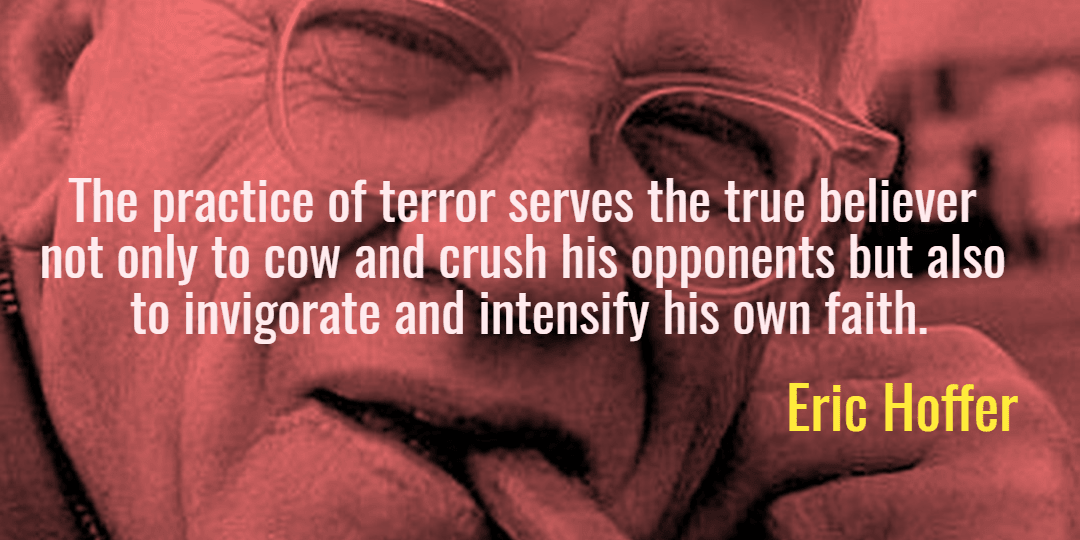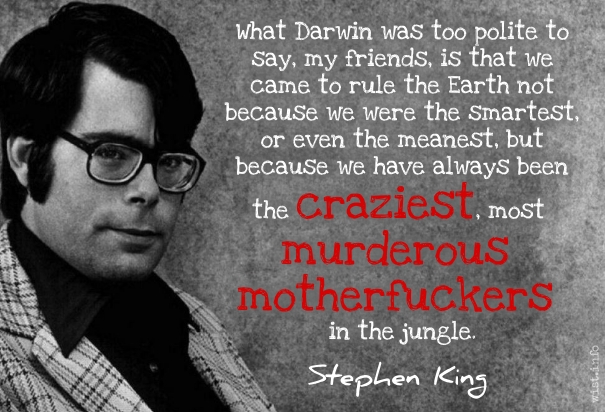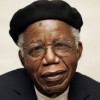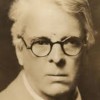How can there be any remedy in insurrection? It is a mere announcement of the disease, — visible now even to sons of Night. Insurrection usually gains little; usually wastes how much. One of its worst kinds of waste, to say nothing of the rest, is that of irritating and exasperating men against each other, by violence done, which is always sure to be injustice done; for violence does even justice unjustly.
Thomas Carlyle (1795-1881) Scottish essayist and historian
Past and Present, Book 1, ch. 3 “Manchester Insurrection” (1843)
(Source)
Quotations about:
violence
Note not all quotations have been tagged, so Search may find additional quotes on this topic.
Force shites upon Reason’s Back.
Benjamin Franklin (1706-1790) American statesman, scientist, philosopher, aphorist
Poor Richard (1736 ed.)
(Source)
What did you expect? I don’t know why we’re so surprised. When you put your foot on a man’s neck and hold him down for three hundred years, and then you let him up, what’s he going to do? He’s going to knock your block off.
Lyndon B. Johnson (1908-1973) American politician, educator, US President (1963-69)
Comment (1968-04-08) to George Christian
(Source)
Regarding the continuing rioting after the assassination of Martin Luther King, Jr., four days earlier.
Quoted in Nick Kotz, Judgment Days: Lyndon Baines Johnson, Martin Luther King, Jr., and the Laws that Changed America, ch. 14 (2005), from the author's interview with Christian.
On this account violence prevails amongst the French; for these laws of honour require a gentleman to avenge himself when he has been insulted; but, on the other hand, justice punishes him unmercifully when he does so. If one follows the laws of honour, one dies upon the scaffold; if one follows those of justice, one is banished for ever from the society of men: this, then, is the barbarous alternative, either to die, or to be unworthy to live.
[Ainsi les François sont dans un état bien violent : car les mêmes lois de l’honneur obligent un honnête homme de se venger quand il a été offensé ; mais, d’un autre côté, la justice le punit des plus cruelles peines lorsqu’il se venge. Si l’on suit les lois de l’honneur, on périt sur un échafaud ; si l’on suit celles de la justice, on est banni pour jamais de la société des hommes. Il n’y a donc que cette cruelle alternative, ou de mourir, ou d’être indigne de vivre.]Charles-Lewis de Secondat, Baron de Montesquieu (1689-1755) French political philosopher
Persian Letters [Lettres Persanes], Letter 91, Usbek to Ibben (1721) [tr. Davidson (1891)]
(Source)
(Source (French)). Alternate translations:So that the French are in a state of great violence: for, on one hand, the laws of honour oblige a man to revenge himself if he is affronted; and, on the other, justice inflicts the most cruel punishments upon him for doing so. If you follow the laws of honour, you lose your head upon a scaffold; if those of justice, you are driven out for ever from the society of men; so that you have only the unhappy choice either of dying, or being unworthy to live.
[tr. Ozell (1760 ed.)]So that the French are in a great state of violence: for these laws of honour oblige a well bred man to revenge himself when he hath been affronted; but, on the other hand, justice punishes him with the severest penalties when he hath done so. If men follow the laws of honour, they die upon a scaffold \; if those of justice, they are banished for ever from the society of men: there is then only this cruel alternative, either to die, or to be unworthy to live.
[tr. Floyd (1762), # 90]Accordingly, the French are in a very perturbed condition; for the laws of honor compel a gentleman to avenge himself when he has been insulted; and, on the other hand, justice punishes him with the severest penalties when he has avenged himself. If a man obey the laws of honor, he dies on the scaffold; if he obey the laws of justice, he is forever shunned by his fellow-men; this, then, is the cruel alternative, either to die, or to be unworthy to live.
[tr. Betts (1897)]And so the French remain in a state of violence, for the laws of honor require a gentleman to avenge himself if insulted; but justice, on the other hand, punishes him cruelly for his vengeance. If you follow the laws of honor, you perish on the scaffold; but to follow the laws of justice means perpetual banishment from the society of men. There is, then, only this harsh alternative: to die or to be unworthy of life.
[tr. Healy (1964)]So the French find themselves in a most dire situation: for those same laws of honour oblige a gentleman to avenge himself if he has been offended, but, on the other hand, the offices of justice punish him in the harshest manner when he does take his revenge. If he obeys the laws of honour, he dies upon the scaffold; if he obeys the laws of the land, he is banished for ever from the society of men. All he can do, then, is choose between these cruel alternatives: to die, or to be unworthy of living.
[tr. Mauldon (2008), # 88]
When a twelfth-century youth fell in love he did not take three paces backward, gaze into her eyes, and tell her she was too beautiful to live. He said he would step outside and see about it. And if, when he got out, he met a man and broke his head — the other man’s head, I mean — then that proved that his — the first fellow’s — girl was a pretty girl. But if the other fellow broke his head — not his own, you know, but the other fellow’s — the other fellow to the second fellow, that is, because of course the other fellow would only be the other fellow to him, not the first fellow who — well, if he broke his head, then his girl — not the other fellow’s, but the fellow who was the — Look here, if A broke B’s head, then A’s girl was a pretty girl; but if B broke A’s head, then A’s girl wasn’t a pretty girl, but B’s girl was. That was their method of conducting art criticism.
Jerome K. Jerome (1859-1927) English writer, humorist [Jerome Klapka Jerome]
Idle Thoughts of an Idle Fellow, “On Being Idle” (1886)
(Source)
At times history and fate meet at a single time in a single place to shape a turning point in man’s unending search for freedom. So it was at Lexington and Concord. So it was a century ago at Appomattox. So it was last week in Selma, Alabama.
There, long-suffering men and women peacefully protested the denial of their rights as Americans. Many were brutally assaulted. One good man, a man of God, was killed.
There is no cause for pride in what has happened in Selma. There is no cause for self-satisfaction in the long denial of equal rights of millions of Americans. But there is cause for hope and for faith in our democracy in what is happening here tonight.
For the cries of pain and the hymns and protests of oppressed people have summoned into convocation all the majesty of this great Government — the Government of the greatest Nation on earth.Lyndon B. Johnson (1908-1973) American politician, educator, US President (1963-69)
Speech (1965-03-15), “The American Promise,” Joint Session of Congress [04:25]
(Source)
A nationally broadcast address, introducing the Voting Rights Act of 1965. The mention of Selma is in reference to the events of "Bloody Sunday" on 7 March 1965.
Others lash the unknown seas with oars,
Rush at the sword, pay court in royal halls.
One destroys a city and its homes
To drink from jewelled cups and sleep on scarlet;
One hoards his wealth and lies on buried gold.
One gapes dumbfounded at the speaker’s stand;
At the theater, still another, open-mouthed,
Reels before crescendos of applause
From the tiers where mob and dignitaries sit.
Others are keen to drench themselves in blood,
Their brothers’ blood, and, exiled, change their homes
And winsome hearths, to range abroad for room
To live in, underneath a foreign sun.[Sollicitant alii remis freta caeca ruuntque
in ferrum, penetrant aulas et limina regum;
hic petit excidiis urbem miserosque Penatis,
ut gemma bibat et Sarrano dormiat ostro;
condit opes alius defossoque incubat auro;
hic stupet attonitus rostris; hunc plausus hiantem
per cuneos — geminatus enim plebisque patrumque —
corripuit; gaudent perfusi sanguine fratrum,
exsilioque domos et dulcia limina mutant
atque alio patriam quaerunt sub sole iacentem.]Virgil (70-19 BC) Roman poet [b. Publius Vergilius Maro; also Vergil]
Georgics [Georgica], Book 2, l. 504ff (2.504-513) (29 BC) [tr. Bovie (1956)]
(Source)
Virgil contrasting violent, ambitious, vain, and rootless life of city folk (evoking the Roman civil wars), in contrast to the bucolic peace and sense of home enjoyed by farmers.
(Source (Latin)). Alternate translations:Some vex the Sea, and some to war resorts,
Attend on Kings, and waite in Princes Courts.
This would his Countrey, and his God betray
To drink in Jems, and on proud scarlet lye.
This hides his wealth, and broods on hidden gold,
This loves to plead, and that to be extold
Through all the seats of Commons, and the sires.
To bathe in's brothers blood this man desires.
Some banish'd, must their native seats exchange,
And Countries, under other Climates range.
[tr. Ogilby (1649)]Some to the Seas, and some to Camps resort,
And some with Impudence invade the Court.
In foreign Countries others seek Renown,
With Wars and Taxes others waste their own.
And Houses burn, and household Gods deface,
To drink in Bowls which glitt'ring Gems enchase:
To loll on Couches, rich with Cytron Steds,
And lay their guilty Limbs in Tyrian Beds.
This Wretch in Earth intombs his Golden Ore,
Hov'ring and brooding on his bury'd Store.
Some Patriot Fools to pop'lar Praise aspire,
By Publick Speeches, which worse Fools admire.
While from both Benches, with redoubl'd Sounds,
Th' Applause of Lords and Commoners abounds.
Some through Ambition, or thro' Thirst of Gold;
Have slain their Brothers, or their Country sold:
And leaving their sweet Homes, in Exile run
To Lands that lye beneath another Sun.
[tr. Dryden (1709), l. 720ff]Some rush to battle, vex with oars the deep,
Or in the courts of Kings insidious creep;
For cups of gem, and quilts of Tyrian, die,
Others remorseless loose each public tie:
On hoarded treasures these ecstatic gaze,
Those eye the Rostra, stupid with amaze:
This for the theatre's applauding roar
Sighs: with the blood of brothers sprinkled o'er
From their dear homes to exile others run,
And seek new seats beneath a distant sun.
[tr. Nevile (1767), l. 565ff]Some vex with restless oar wild seas unknown.
Some rush on death, or cringe around the throne;
Stern warriors here beneath their footsteps tread
The realm that rear'd them, and the hearth that fed,
To quaff from gems, and lull to transient rest
The wound that bleeds beneath the Tyrian vest.
These brood with sleepless gaze o'er buried gold,
The rostrum these with raptur'd trance behold,
Or wonder when repeated plaudits raise
'Mid peopled theatres the shout of praise;
These with grim joy, by civil discord led,
And stain'd in battles where a brother bled.
From their sweet household hearth in exile roam,
And seek beneath new suns a foreign home.
[tr. Sotheby (1800)]Some vex the dangerous seas with oars, some rush into arms, some work their way into courts, and the palaces of kings. One destines a city and wretched families to destruction, that he may drink in gems and sleep on Tyrian purple. Another hoards up wealth, and broods over buried gold. One, astonished at the rostrum, grows giddy; another peals of applause along the rows, (for it is redoubled both by the people and the fathers,) have captivated, and set agape; some rejoice when stained with their brother's blood; and exchange their homes and sweet thresholds for exile, and seek a country lying under another sun.
[tr. Davidson (1854)]While others vex dark Hellespont with oars,
Leap on the sword, or dash through royal stores,
Storm towns and homesteads, in their vile desire
To quaff from pearl, and sleep on tints of Tyre;
While others hoard and brood on buried dross,
And some are moonstruck at the pleader's gloss;
While this man gapes along the pit, to hear
The mob and senators renew their cheer;
And others, reeking in fraternal gore,
With songs of triumph quit their native shore,
Abjure sweet home for banishment, and run
In quest of country 'neath another sun --
[tr. Blackmore (1871), l. 602ff]Others are startling the darkness of the deep with oars, rushing on the sword's pint, winning their way into the courts and ante-chambers of kings; another is dooming a city to ruin and its homes to misery, that he may drink from jewelled cups and sleep on Tyrian purple; another hoards his wealth, and broods o'er buried gold; this man is dazzled and amazed by the eloquence of the rostra; that man the applause of commoners and senators, as it rolls redoubled through the benches, transports agape with wonder; they steep their hands in brothers' blood and joy, they change their homes and the thresholds of affection for the land of exile, and seek a fatherland that lies beneath another sun.
[tr. Wilkins (1873)]Others vex
The darksome gulfs of Ocean with their oars,
Or rush on steel: they press within the courts
And doors of princes; one with havoc falls
Upon a city and its hapless hearths,
From gems to drink, on Tyrian rugs to lie;
This hoards his wealth and broods o'er buried gold;
One at the rostra stares in blank amaze;
One gaping sits transported by the cheers,
The answering cheers of plebs and senate rolled
Along the benches: bathed in brothers' blood
Men revel, and, all delights of hearth and home
For exile changing, a new country seek
Beneath an alien sun.
[tr. Rhoades (1881)]These dare the ocean, and invite the storm,
This rage, and this the courtier’s wiles deform;
All faith, all right the traitor’s acts defy,
From gems to drink, on Tyrian purple lie;
One broods in misery o’er his hoarded gold.
And one in chains the people’s plaudits hold.
There stains of blood pollute a brother’s hand,
And he in terror flies his father’s land.
[tr. King (1882), l. 514ff]Some vex the dangerous seas with oars, or rush into arms, or work their way into courts and the palaces of kings: one marks out a city and its wretched homes for destruction, that he may drink from jewelled cups and sleep on Tyrian purple. Another hoards up wealth, and lies sleepless on his buried gold. One, in bewildered amazement, gazes at the Rostra; another, in open-mouthed delight, the plaudits of the commons and the nobles, redoubled along benches, have arrested: some take pleasure in being drenched with a brother’s blood; and exchange their homes and dear thresholds for exile, and seek a country lying under another sun.
[tr. Bryce (1897)]Others vex blind sea-ways with their oars, or rush upon the sword, pierce the courts and chambers of kings; one aims destruction at the city and her wretched homes, that he may drink from gems and sleep on Tyrian scarlet; another heaps up wealth and broods over buried gold; one hangs rapt in amaze before the Rostra; one the applause of populace and senate re-echoing again over the theatre carries open-mouthed away: joyfully they steep themselves in blood of their brethren, and exchange for exile the dear thresholds of their homes, and seek a country spread under an alien sun.
[tr. Mackail (1899)]Others may tempt with oars the printless sea, may fling
Their lives to the sword, may press through portals and halls of a king.
This traitor hath ruined his country, hath blasted her homes, thereby
To drink from a jewelled chalice, on Orient purple to lie;
That fool hoards up his wealth, and broods o'er his buried gold;
That simple-one gazes rapt on the rostra: the loud cheers rolled
Down the theatre-seats, as Fathers and people acclaiming stood,
Have entranced yon man; men drench them with joy in their brethren's blood;
Into exile from home and its sweet, sweet threshold some have gone
Seeking a country that lieth beneath an alien sun.
[tr. Way (1912), l. 503ff]Let strangers to such peace
Trouble with oars the boundless seas or fly
To wars, and plunder palaces of kings;
Make desolate whole cities, casting down
Their harmless gods and altars, that one's wine
May from carved rubies gush, and slumbering head
On Tyrian pillow lie. A man here hoards
His riches, dreaming of his buried gold;
Another on the rostrum's flattered pride
Stares awe-struck. Him th' applause of multitudes.
People and senators, when echoed shouts
Ring through the house approving, quite enslaves.
With civil slaughter and fraternal blood
One day such reek exultant, on the next
Lose evermore the long-loved hearth and home.
[tr. Williams (1915)]Others brave with oars seas unknown, dash upon the sword, or press their way into courts and the chambers of kings. One wreaks ruin on a city and its wretched homes, and all to drink from a jewelled cup and sleep on Tyrian purple; another hoards wealth and gloats over buried gold; one stares in admiration at the rostra; another, open-mouthed, is carried away by the applause of high and low which rolls again and again along the benches. They steep themselves in their brothers’ blood and glory in it; they barter their sweet homes and hearths for exile and seek a country that lies beneath an alien sun.
[tr. Fairclough (Loeb) (1916)]Other men dare the sea with their oars blindly, or dash
On the sword, or insinuate themselves into royal courts:
One ruins a whole town and the tenements of the poor
In his lust for jewelled cups, for scarlet linen to sleep on,
One piles up great wealth, gloats over his cache of gold;
One gawps at the public speakers; one is worked up to hysteria
By the plaudits of senate and people resounding across the benches:
These shed their brothers’ blood
Merrily, they barter for exile their homes beloved
And leave for countries lying under an alien sun.
[tr. Day-Lewis (1940)]Others churn blind straits with their oars, and rush to the sword, force their way across the thresholds and into the courts of kings; [...] They rejoice, soaked in their brothers’ blood, exchange their own sweet thresholds for exile and seek a fatherland under another sun.
[tr. Miles (1980)]Some vex with oars uncharted waters, some
Rush on cold steel, some seek to worm their way
Into the courts of kings. One is prepared
To plunge a city's homes in misery
All for a jewelled cup and a crimson bedspread;
Another broods on a buried hoard of gold.
This one is awestruck by the platform's thunder;
That one, enraptured, gapes ad the waves of applause
from high and low rolling across the theater.
Men revel steeped in brothers' blood, exchange
The hearth they love for banishment, and seek
A home in lands benath an alien sun.
[tr. Wilkinson (1982)]Others trouble unknown seas with oars, rush on
their swords, enter the gates and courts of kings.
This man destroys a city and its wretched houses,
to drink from a jewelled cup, and sleep on Tyrian purple:
that one heaps up wealth, and broods about buried gold:
one’s stupefied, astonished by the Rostra: another, gapes,
entranced by repeated applause, from people and princes,
along the benches: men delight in steeping themselves
in their brothers’ blood, changing sweet home and hearth for exile,
and seeking a country that lies under an alien sun.
[tr. Kline (2001)]Others slap their oars on dark, unknown seas, fall on their swords,
or thrust themselves into royal courts and palaces.
One man aims to destroy a city and its humble homes -- just
to drink from a jeweled goblet and sleep on Tyrian purple;
another stores up treasures and broods on his buried gold.
Wide-eyed, one gawks at the forum's speakers; another,
mouth agape, is swept away when lower class and upper both
applaud a statesman. Dripping with their brothers' gore,
they exult, exchanging familiar homes and hearths for exile,
they seek a fatherland that lies beneath a foreign sun.
[tr. Lembke (2004)]Others fret with oars uncharted seas, or rush
upon the sword, or infiltrate the courts and vestibules of kings.
One visits devastation on a city and its wretched hearths
that he may slurp from a jewelled cup and snore on Tyrian purple.
Another hoards treasure and broods over buried gold.
One wonders thunderstruck at the podium, one gapes
transported by the applause of senators and commonfolk
resounding through the galleries. Drenched in their brothers' blood
they exult, and trade exile for their homes and sweet porches,
and seek a homeland under an alien sun.
[tr. Johnson (2009)]There are those who with their oars disturb the waters
Of dangerous unknown seas, and those who rush
Against the sword, and those who insinuate
Their way into the chamber of a king:
There's one who brings down ruin on a city
And all its wretched households, in his desire
To drink from an ornate cup and go to sleep
On Tyrian purple coverlets at night;
There's the man who heaps up gold, and hides it away,
There's he who stares up stupefied at the Rostrum;
There's the open-mouthed, undone astonishment
Of the one who hears the waves and waves of the wild
Applause of the close packed crowd in the theater;
There are those who bathe in their brothers' blood, rejoicing;
And those who give up house and home for exile,
Seeking a land an alien sun shines on.
[tr. Ferry (2015)]
Blind greed! Brainless rage!
In our brief lives they drive us beyond sense
And leave us misery for a heritage
Throughout eternity![Oh cieca cupidigia e ira folle,
che sì ci sproni ne la vita corta,
e ne l’etterna poi sì mal c’immolle!]Dante Alighieri (1265-1321) Italian poet
The Divine Comedy [Divina Commedia], Book 1 “Inferno,” Canto 12, l. 49ff (12.49-51) (1309) [tr. James (2013)]
(Source)
On seeing Phlegethon, the river of boiling blood, in which those who violently injured others (through greed or wrath) are forced to stand for all eternity.
Some versions have this as something Virgil says; most make it an exclamation of Dante's.
(Source (Italian)). Alternate translations:O foolish Rage, O blind desire,
That spurs you on, in the short life above,
To such dire Acts as to eternity
Will keep you in this wretched bath below!
[tr. Rogers (1782), l. 45ff]O blind lust!
O foolish wrath! who so dost goad us on
In the brief life, and in the eternal then
Thus miserably o’erwhelm us.
[tr. Cary (1814)]Oh blinded lust! oh anger void of sense!
To spur us o'er the shorter life so bold,
So fell to steep us in the life immense!
[tr. Dayman (1843)]Oh blind cupidity [both wicked and foolish],
which so incites us in the short life, and then,
in the eternal, steeps us so bitterly!
[tr. Carlyle (1849)]O blind cupidity! O foolish wrath!
Thorough this short life, that spurs them to the sleep,
Eternally in tide like this to steep.
[tr. Bannerman (1850), from Virgil]Oh, blinded greediness! oh, foolish rage!
Which spur us so in the short world of life,
And then in death so drown us in despair!
[tr. Johnston (1867)]O blind cupidity, O wrath insane,
That spurs us onward so in our short life,
And in the eternal then so badly steeps us!
[tr. Longfellow (1867)]O blind covetousness! O foolish wrath! that dost so spur us in our short life, and afterward in the life eternal dost in such evil wise steep us!
[tr. Butler (1885)]O blind cupidity, O foolish ire,
Which spurs us on so in our life's short day,
And soaks us till Eternity expire!
[tr. Minchin (1885)]Oh blind cupidity, both guilty and mad, that so spurs us in the brief life, and then, in the eternal, steeps us so ill!
[tr. Norton (1892)]O sightless greed! O foolish wrath! that dost in our short life, so goad us; and after, in the life that hath no end, dost sink us in such evil plight.
[tr. Sullivan (1893), from Virgil]Oh, blind cupidity! Oh, senseless anger,
Which in the brief life spurs us on so hotly.
And in the eternal then so sadly dips us !
[tr. Griffith (1908)]O blind covetousness and foolish anger, which in the brief life so goad us on and then, in the eternal, steep us in such misery!
[tr. Sinclair (1939)]O blind greed and mad anger, all astray
That in the short life goad us onward so,
And in the eternal with such plungings pay!
[tr. Binyon (1943)]O blind, O rash and wicked lust of spoil,
That drives our short life with so keen a goad
And steeps our life eternal in such broil!
[tr. Sayers (1949)]Oh blind!
Oh ignorant, self-seeking cupidity
which spurs us so in the short mortal life
and steeps us so through all eternity!
[tr. Ciardi (1954)]O blind cupidity and mad rage, which in the brief life so goad us on, and then, in the eternal, steep us so bitterly!
[tr. Singleton (1970)]O blind cupidity and insane wrath,
spurring us on through our short life on earth
to steep us then forever in such misery!
[tr. Musa (1971)]O blind cupidity and insane anger,
which goad us on so much in our short life,
then steep us in such grief eternally!
[tr. Mandelbaum (1980)]O blind cupidity and senseless anger,
Which so goads us in our short life here
And, in the eternal life, drenches us miserably!
[tr. Sisson (1981)]O blind desire
Of covetousness, O anger gone insane --
That goad us on through life, which is so brief,
to steep in eternal woe when life is done.
[tr. Pinsky (1994)]Oh blind cupidity and mad rage, that so spur us in this short life, and then in the eternal one cook us so evilly!
[tr. Durling (1996)]O blind desires, evil and foolish, which so goad us in our brief life, and then, in the eternal one, ruin us so bitterly!
[tr. Kline (2002)]O blind cupidity, that brew of bile
and foolishness, which bubbles our brief lives,
before it steeps us in eternal gall!
[tr. Carson (2002)]What blind cupidity, what crazy rage
impels us onwards in our little lives --
then dunks us in this stew to all eternity!
[tr. Kirkpatrick (2006)]O blind covetousness, insensate wrath,
which in this brief life goad us on and then,
in the eternal, steep us in such misery!
[tr. Hollander/Hollander (2007)]O greedy blindness and rage, insane and senseless,
Spurring us on in this, our so short life,
Then immolating us forever and ever!
[tr. Raffel (2010)]
But it was much earlier even than that when most people forgot that the very oldest stories are, sooner or later, about blood. Later on they took the blood out to make the stories more acceptable to children, or at least to the people who had to read them to children rather than the children themselves (who, on the whole, are quite keen on blood provided it’s being shed by the deserving), and then wondered where the stories went.
Violent means are unlikely to reach a peaceful end … the ends and means are a seamless web.
Gloria Steinem (b. 1934) American feminist, journalist, activist
Moving Beyond Words, Part 6 “Doing Sixty” (1994)
(Source)
Regarding the Vietnam anti-war movement.
I remember a man whom I knew when I was young, who was small, anaemic, and timid, but used to proclaim himself an anarchist. He never realised that his whole existence depended upon police protection, or that in a world without government he would be robbed of all his possessions and left to starve.
Bertrand Russell (1872-1970) English mathematician and philosopher
“Back to Nature?,” New York American (1934-04-30)
(Source)
As, when in tumults rise th’ ignoble crowd,
Mad are their motions, and their tongues are loud;
And stones and brands in rattling volleys fly,
And all the rustic arms that fury can supply.[Ac veluti magno in populo cum saepe coorta est
seditio, saevitque animis ignobile volgus,
iamque faces et saxa volant — furor arma ministrat ….]Virgil (70-19 BC) Roman poet [b. Publius Vergilius Maro; also Vergil]
The Aeneid [Ænē̆is], Book 1, l. 148ff (1.148-150) (29-19 BC) [tr. Dryden (1697)]
(Source)
(Source (Latin)). Alternate translations:As oft when a great people mutinie
Ignoble vulgar rage; stones, firebrands flye,
Furie finds arms.
[tr. Ogilby (1649)]And as when a sedition has perchance arisen among a mighty multitude, and the minds of the ignoble vulgar rage; now firebrands, now stones fly; fury supplies them with arms.
[tr. Davidson/Buckley (1854)]As when sedition oft has stirred
In some great town the vulgar herd,
And brands and stones already fly --
For rage has weapons always nigh ....
[tr. Conington (1866)]As when
Sedition in a multitude has risen,
And the base mob is raging with fierce minds,
And stones and firebrands fly, and fury lends
Arms to the populace ...
[tr. Cranch (1872), l. 187ff]Even as when oft in a throng of people strife hath risen, and the base multitude rage in their minds, and now brands and stones are flying; madness lends arms.
[tr. Mackail (1885)]And, like as mid a people great full often will arise
Huge riot, and all the low-born herd to utter anger flies,
And sticks and stones are in the air, and fury arms doth find ....
[tr. Morris (1900)]As when in mighty multitudes bursts out
Sedition, and the wrathful rabble rave;
Rage finds them arms; stones, firebrands fly about ....
[tr. Taylor (1907), st. 21, l. 181ff]As when, with not unwonted tumult, roars
in some vast city a rebellious mob,
and base-born passions in its bosom burn,
till rocks and blazing torches fill the air
(rage never lacks for arms) ....
[tr. Williams (1910)]And as, when oft-times in a great nation tumult has risen, the base rabble rage angrily, and now brands and stones fly, madness lending arms ....
[tr. Fairclough (1916)]Sometimes, in a great nation, there are riots
With the rabble out of hand, and firebrands fly
And cobblestones; whatever they lay their hands on
Is a weapon for their fury.
[tr. Humphries (1951)]Just as so often it happens, when a crowd collects, and violence
Brews up, and the mass mind boils nastily over, and the next thing
Firebrands and brickbats are flying (hysteria soon finds a missile) ....
[tr. Day-Lewis (1952)]And just as, often, when a crowd or people
is rocked by a rebellion, and the rabble
rage in their minds, and firebrands and stones
fly fast -- for fury finds its weapons ....
[tr. Mandelbaum (1971), l. 209ff]When rioting breaks out in a great city,
And the rampaging rabble goes so far
That stones fly, and incendiary brands --
For anger can supply that kind of weapon ....
[tr. Fitzgerald (1981)]As when disorder arises among the people of a great city and the common mob riuns riot, wild passion finds weapons for men's hands and torches and rocks start flying ....
[tr. West (1990)]As often, when rebellion breaks out in a great nation,
and the common rabble rage with passion, and soon stones
and fiery torches fly (frenzy supplying weapons) ....
[tr. Kline (2002)]Riots will often break out in the crowded assembly
When the rabble are roused. Torches and stones
Are soon flying -- Fury always finds weapons.
[tr. Lombardo (2005)]Just as, all too often,
some huge crowd is seized by a vast uprising,
the rabble runs amok, all slaves to passion,
rocks, firebrands flying. Rage finds them arms.
[tr. Fagles (2006)]Just as riots often fester in great crowds when the common mob goes mad; rocks and firebrands fly, the weapons rage supplies.
[tr. Bartsch (2021)]
MACBETH: It will have blood, they say; blood will have blood.
William Shakespeare (1564-1616) English dramatist and poet
Macbeth, Act 3, sc. 4, l. 152 (3.4.152) (1606)
(Source)
To Lady Macbeth.
When the judgment day comes, civilization will have an alibi: “I never took a human life, I only sold the fellow the gun to take it with.”
War is an act of violence, which in its application knows no bounds
[Der Krieg ist ein Akt der Gewalt, und es gibt in der Anwendung derselben keine Grenzen.]
Karl von Clausewitz (1780-1831) Prussian soldier, historian, military theorist
On War [Vom Kriege], Book 1, ch. 1 “What Is War? [Was ist der Krieg?],” § 3 (1.1.3) (1832) [tr. Graham (1873)]
(Source)
(Source (German)). Alternate translations:War is an act of violence pushed to its utmost bounds.
[tr. Graham/Maude (1908)]War is an act of force, and to the application of that force there is no limit.
[tr. Jolles (1943)]War is an act of force, and there is no logical limit to the application of that force.
[tr. Howard & Paret (1976)]
War is nothing but a duel on a larger scale. Countess duels go to make up a war, but a picture of it as a whole can be formed by imagining a pair of wrestlers. Each tries through physical force to compel the other to do his will; his immediate aim is to throw his opponent in order to make him incapable of further resistance. War is thus an act of force to compel the enemy to do our will.
[Der Krieg ist nichts als ein erweiterter Zweikampf. Wollen wir uns die Unzahl der einzelnen Zweikämpfe, aus denen er besteht, als Einheit denken, so tun wir besser, uns zwei Ringende vorzustellen. Jeder sucht den anderen durch physische Gewalt zur Erfüllung seines Willens zu zwingen; sein nächster Zweck ist, den Gegner niederzuwerfen und dadurch zu jedem ferneren Widerstand unfähig zu machen. Der Krieg ist also ein Akt der Gewalt, um den Gegner zur Erfüllung unseres Willens zu zwingen.]
Karl von Clausewitz (1780-1831) Prussian soldier, historian, military theorist
On War [Vom Kriege], Book 1, ch. 1 “What Is War? [Was ist der Krieg?],” § 2 (1.1.2) (1832) [tr. Howard & Paret (1976)]
(Source)
(Source (German)). Alternate translations:War is nothing but a duel on an extensive scale. If we would conceive as a unit the countless number of duels which make up a war, we shall do so best by supposing to ourselves two wrestlers. Each strives by physical force to compel the other to submit to his will: his first object is to throw his adversary, and thus to render him incapable of further resistance. War therefore is an act of violence to compel our opponent to fulfil our will.
[tr. Graham (1873)]War is nothing but a duel on a larger scale. If we would combine into one conception the countless separate duels of which it consists, we would do well to think of two wrestlers. Each tries by physical force to compel the other to do his will; his immediate object is to overthrow his adversary and thereby make him incapable of any further resistance. War is thus an act of force to compel our adversary to do our will.
[tr. Jolles (1943)]
Violent zeal for truth has a hundred to one odds to be either petulancy, ambition, or pride.
The object of what we call deportment and good manners is to attain that which can otherwise be attained only by force or not even by force.
[Durch das, was wir Betragen und gute Sitten nennen, soll das erreicht werden, was außerdem nur durch Gewalt, oder auch nicht einmal durch Gewalt zur erreichen ist.]
Johann Wolfgang von Goethe (1749-1832) German poet, statesman, scientist
Elective Affinities [Die Wahlverwandtschaften], Part 2, ch. 5, “From Ottilie’s Journal [Aus Ottiliens Tagebuche]” (1809) [tr. Hollingdale (1971)]
(Source)
(Source (German)). Alternate translation:That which we call politeness and good breeding effects what otherwise can only be obtained by violence, or not even that.
[Niles ed. (1872)]
When it gets down to having to use violence, then you are playing the system’s game. The establishment will irritate you — pull your beard, flick your face — to make you fight. Because once they’ve got you violent, then they know how to handle you. The only thing they don’t know how to handle is non-violence and humor.
John Lennon (1940-1980) English rock musician, singer, songwriter
Interview, Bed-Ins for Peace, Montreal, Canada (1 Jun 1969)
(Source)
Break the skin of civilization and you find the ape, roaring and red-handed.
All of our exalted technological progress, civilization for that matter, is comparable to an axe in the hand of a pathological criminal.
Albert Einstein (1879-1955) German-American physicist
Letter to Heinrich Zangger (6 Dec 1917), in Collected Papers, Vol. 8, # 403 (1987) [tr. Hentschel]
(Source)
It is supposed to be true that those who do not know history are doomed to repeat it. I don’t believe knowing can save us. What is constant in history is greed and foolishness and a love of blood, and this is a thing that even God — who knows all that can be known — seems powerless to change.
The existence of inequality exposes everyone to the risk of being inferior, which in turn stimulates aggressive competition to inflict the inferior status on others (such as by enslaving, impoverishing, or degrading them). In other words, inequality stimulates shame and shame stimulates inequality; shame stimulates violence and violence stimulates shame; inequality leads to violence and violence leads to inequality.
James Gilligan (b. c. 1936) American psychiatrist and author
Preventing Violence, ch. 2 (2001)
(Source)
The purpose of violence is to force respect from other people. The less self-respect people feel, the more they are dependent on respect from others; for without a certain minimal amount of respect, from others or the self, the self begins to feel dead inside, numb and empty. That is how the most violent criminals told me they felt, and it is clear that it is the most intolerable of all feelings (though it is actually an absence of feeling, lack of the feeling of pride, or self-love). When people lack self-respect, and feel they are incapable of eliciting respect from others in the form of admiration for their achievements or their personalities, they may see no way to get respect except in the form of fear, which I think of as a kind of ersatz substitute for admiration; and violence does elicit fear, as it is intended to. For example, I have spoken to many violent criminals who spoke of how gratifying it was to see fear in the eyes of their victims.
James Gilligan (b. c. 1936) American psychiatrist and author
Preventing Violence, ch. 1 (2001)
(Source)
Unequal societies are not only the most violent; they are also the least productive.
James Gilligan (b. c. 1936) American psychiatrist and author
Preventing Violence, ch. 5 (2001)
(Source)
We cannot learn what causes violence and how we could prevent it as long as we are thinking in the traditional moral and legal terms. The only questions that this way of thinking can ask take the form: “How evil (or heroic) was this particular act of violence, and how much punishment (or reward) does the person who did it deserve?” But even if it were possible to gain the knowledge that would be necessary to answer those questions (which it is not), answers would still not help us in the least to understand what causes violence or how we could prevent it — these are empirical not moral questions.
James Gilligan (b. c. 1936) American psychiatrist and author
Preventing Violence, Introduction (2001)
(Source)
I have yet to see a serious act of violence that was not provoked by the experience of feeling shamed or humiliated, disrespected and ridiculed.
James Gilligan (b. c. 1936) American psychiatrist and author
Interview in Jon Ronson, So You’ve Been Publicly Shamed, ch. 13 (2015)
(Source)
All violence is an attempt to replace shame with self-esteem.
James Gilligan (b. c. 1936) American psychiatrist and author
(Attributed)
(Source)
Quoted by Jon Ronson in "Jon Ronson: By the Book," New York Times (9 Apr 2015). When asked what one book he would require a US President to read, he named Gilligan's Violence: Reflections on a National Epidemic, and then, having said he's talked with Gilligan, Ronson gives the quotation above, and this is the form it's usually given, often then cited to the book.
In the actual book, Violence: Reflections on a National Epidemic, ch. 5 (1997), Gilligan has:The different forms of violence, whether toward individuals or entire populations, are motivated (caused) by the feeling of shame. The purpose of violence is to diminish the intensity of shame and replace it as far as possible with its opposite, pride, thus preventing the individual from being overwhelmed by the feeling of shame. Violence toward others, such as homicide, is an attempt to replace shame with pride.
The most dangerous men on earth are those who are afraid that they are wimps.
James Gilligan (b. c. 1936) American psychiatrist and author
Violence: Reflections on a National Epidemic, ch. 3 (1997)
(Source)
There are things in the breast of mankind which are best
In darkness and secrecy hid;
For you never can tell, when you’ve opened a hell,
How soon you can put back the lid.Rudyard Kipling (1865-1936) English writer
“The Sons of the Suburbs” (1916)
(Source)
On bloodthirstiness in war by previously peaceful people.
Originally written for the Christmas 1916 issue of Blighty, a magazine for servicemen. It was rejected, eventually to be published in the Sunday Pictorial (19 Jan 1936). It was never included by Kipling in any of his collections.
We are told by some of the Jewish Rabbins, that the first Murder was occasioned by a religious Controversy; and if we had the whole History of Zeal from the Days of Cain to our own Times, we should see it filled with so many Scenes of Slaughter and Bloodshed, as would make a wise Man very careful how he suffers himself to be actuated by such a Principle, when it only regards Matters of Opinion and Speculation.
Joseph Addison (1672-1719) English essayist, poet, statesman
The Spectator, #185 (2 Oct 1711)
(Source)
We vainly accuse the fury of Gunnes, and the new inventions of death; ’tis in the power of every hand to destroy us, and wee are beholding unto every one wee meete hee doth not kill us.
[We vainly accuse the fury of guns, and the new inventions of death; it is in the power of every hand to destroy us, and we are beholden unto every one we meet he doth not kill us.]
Thomas Browne (1605-1682) English physician and author
Religio Medici, Part 1, sec. 43 (1643)
(Source)
We were born of risen apes, not fallen angels, and the apes were armed killers besides. And so what shall we wonder at? Our murders and massacres and missiles, and our irreconcilable regiments? Or our treaties whatever they may be worth; our symphonies however seldom they may be played; our peaceful acres, however frequently they may be converted to battlefields; our dreams however rarely they may be accomplished. The miracle of man is not how far he has sunk but how magnificently he has risen. We are known among the stars by our poems, not our corpses.
Robert Ardrey (1908-1980) American playwright, screenwriter and science writer
African Genesis: A Personal Investigation into the Animal Origins and Nature of Man (1961)
(Source)
The very presence of a weapon provokes a man to use it.
[αὐτὸς γὰρ ἐφέλκεται ἄνδρα σίδηρος.]
Homer (fl. 7th-8th C. BC) Greek author
The Odyssey [Ὀδύσσεια], Book 16, l. 294 (16.294) [Odysseus] (c. 700 BC) [tr. Rieu (1946)]
(Source)
(Greek (Source)), repeated in 19.13.
In Book 16, Odysseus offers this as part of the argument Telemachus can use to the suitors to explain why he has stripped the hall of weapons -- that, should the weapons remain, they might tempt drunken people to violence. Book 19, back at the hall, Odysseus repeats almost the same instructions to Telemachus. The same Greek is used for this phrase in both passages; some translators use the same language, others make changes to it.
Epigram (and title inspiration) in Joe Abercrombie's The Blade Itself (2006) -- "The blade itself incites to deeds of violence." Abercrombie was a fan of the Rome: Total War game, which included in its load pages the translation, "The blade itself incites to violence.
BOOK 16, l. 294
- "Steel itself, ready, draws a man to blows." [tr. Chapman (1616)]
- "One drawn sword draws another." [tr. Hobbes (1675), l. 276]
- "Oft ready swords in luckless hour incite / The hand of wrath, and arm it for the fight." [tr. Pope (1725)]
- "For the view / Itself of arms incites to their abuse." [tr. Cowper (1792), l. 348]
- "Steel itself oft lures a man to fight." [tr. Worsley (1861), st. 37]
- "Steel itself wooes men to battle!" [tr. Bigge-Wither (1869)]
- "For the steel blade itself lures men to blood." [tr. Musgrave (1869), l. 462]
- "For iron of itself draws a man thereto." [tr. Butcher/Lang (1879)]
- "For this is said aright, / That e'en of himself the iron draws on a man to smite." [tr. Morris (1887)]
- "Steel itself draws men on." [tr. Palmer (1891)]
- "For the sight of arms sometimes tempts people to use them." [tr. Butler (1898)]
- "For of itself does the iron draw a man to it." [tr. Murray (1919)]
- "Iron of itself tempts man's frailty." [tr. Lawrence (1932)]
- "Tempered iron can magnetize a man." [tr. Fitzgerald (1961)]
- "Iron all of itself works on a man and attracts him." [tr. Lattimore (1965)]
- "For iron of itself can tempt a man." [tr. Mandelbaum (1990)]
- "Iron has powers to draw a man to ruin." [tr. Fagles (1996)]
- "There's a force in iron that lures men on." [tr. D. C. H. Rieu (2002)]
- "For iron itself draws a man to employ it." [tr. Merrill (2002)]
- "Iron of itself draws a man on." [tr. Verity (2016)]
- "Weapons themselves can tempt a man to fight." [tr. Wilson (2017)]
- "For iron of itself attracts a man." [tr. Green (2018)]
- "Iron attracts a man all on its own." [tr. Johnston (2019)]
- "And beckoning, the iron itself drags the man." [Source]
BOOK 19, l. 13 -- items in italics are the same as their Book 16 counterparts.
- "As loadstones draw the steel, so steel draws man." [tr. Chapman (1616)]
- "One drawn sword draws another." [tr. Hobbes (1675)]
- "By sight of swords to fury fired." [tr. Pope (1725)]
- "For the view / Itself of arms incites to their abuse." [tr. Cowper (1792)]
- "Steel itself oft lures a man to fight." [tr. Worsley (1861), st. 2]
- "The sight of iron tempts to use it!" [tr. Bigge-Wither (1869)]
- "For the steel blade itself / Lures men to blood." [tr. Musgrave (1869)]
- "For iron of itself draws a man thereto." [tr. Butcher/Lang (1879)]
- "For e'en of himself the Iron to battle draweth men." [tr. Morris (1887)]
- "Steel itself draws men on." [tr. Palmer (1891)]
- "For the sight of arms sometimes tempts people to use them." [tr. Butler (1898)]
- "For of itself does the iron draw a man towards it." [tr. Murray (1919)]
- "Iron has that attraction for men." [tr. Lawrence (1932)]
- "The very presence of a weapon provokes a man to use it." [tr. Rieu (1946)]
- "Iron itself can draw men's hands." [tr. Fitzgerald (1961)]
- "Iron all of itself works on a man and attracts him." [tr. Lattimore (1965)]
- "For iron of itself can tempt a man." [tr. Mandelbaum (1990)]
- "Iron has powers to draw a man to ruin." [tr. Fagles (1996)]
- "Steel has a way of drawing a man to it." [tr. Lombardo (2000)]
- "There's a force in iron that lures men on." [tr. D. C. H. Rieu (2002)]
- "For iron itself draws a man to employ it." [tr. Merrill (2002)]
- "For iron of itself draws a man on." [tr. Verity (2016)]
- "For iron of itself attracts a man." [tr. Green (2018)]
- "For iron by itself / can draw a man to use it." [tr. Johnston (2019)]
Jesus was not brought down by atheism and anarchy. He was brought down by law and order allied with religion, which is always a deadly mix. Beware of those who claim to know the mind of God and who are prepared to use force, if necessary, to make others conform. Beware of those who cannot tell God’s will from their own. Temple police are always a bad sign. When chaplains start wearing guns and hanging out at the sheriff’s office, watch out. Someone is about to have no king but Caesar.
Barbara Brown Taylor (b. 1951) American minister, academic, author
“The Perfect Mirror,” Christian Century (18-25 Mar 1998)
(Source)
Violence is often caused by a surfeit of morality and justice, at least as they are conceived in the minds of the perpetrators.
Steven Pinker (b. 1954) Canadian-American cognitive psychologist, linguist, author
The Better Angels of our Nature, ch. 3 (2011)
(Source)
Still, the danger of the practice of violence, even if it moves consciously within a non-extremist framework of short-term goals, will always be that the means overwhelm the end. If goals are not achieved rapidly, the result will not merely be defeat but the introduction of the practice of violence into the whole body politic. Action is irreversible, and a return to the status quo in case of defeat is always unlikely. The practice of violence, like all action, changes the world, but the most probable change is a more violent world.
Hannah Arendt (1906-1975) German-American philosopher, political theorist
“Reflections on Violence,” New York Review of Books (27 Feb 1969)
(Source)
Sometimes it’s better to light a flamethrower than to curse the darkness.
The chief reason warfare is still with us is neither a secret death-wish of the human species, nor an irrepressible instinct of aggression, nor, finally and more plausibly, the serious economic and social dangers inherent in disarmament, but the simple fact that no substitute for this final arbiter in international affairs has yet appeared on the political scene.
Hannah Arendt (1906-1975) German-American philosopher, political theorist
“On Violence,” Crises of the Republic (1972)
(Source)
MORDEN: Think about it, Captain. Look at the long history of human struggle. Six thousand years of recorded wars, bloodshed, atrocities beyond description. But look at what came out of all that. We’ve gone to the stars. Split the atom. Written sonnets. We would never have evolved this far if we hadn’t been at each other’s throats, evolving our way up inch by inch.
To believe that man’s aggressiveness or territoriality is in the nature of the beast is to mistake some men for all men, contemporary society for all possible societies, and, by a remarkable transformation, to justify what is as what needs must be; social repression becomes a response to, rather than a cause of, human violence.
Leon Eisenberg (1922-2009) American psychiatrist and medical educator
“The Human Nature of Human Nature,” Science (14 Apr 1972)
(Source)
Based on an address at Faculty of Medicine Day, McGill University Sesquicentennial Celebration, Montreal, Canada (1 Oct 1971).
What we need in the United States is not division; what we need in the United States is not hatred; what we need in the United States is not violence or lawlessness; but love and wisdom, and compassion toward one another, and a feeling of justice toward those who still suffer within our country, whether they be white or they be black.
Robert Francis Kennedy (1925-1968) American politician
Statement on the Assassination of Martin Luther King, Jr., Indianapolis (1968-04-04)
(Source)
The man that lays his hand on woman,
Save in the way of kindness, is a wretch
Whom ’twere gross flattery to name a coward.
Don’t flang him off the bluff, boys. Tain’t christian.
Wisdom is publicly rejected, affairs are pursued with force,
A good speaker is spurned, and the wretched warrior is loved.
Men strive not with educated speeches but instead with insults
attack one another and enter into mutual enmity.
They seize property suddenly not by the right of law but with swords
As they seek sovereignty and wander with the power of the mob.[Pellitur e medio sapientia, vi geritur res,
spernitur orator bonus, horridus miles amatur.
haut doctis dictis certantes nec maledictis
miscent inter sese inimicitiam agitantes,
non ex iure manum consertum, sed magis ferro
rem repetunt regnumque petunt, vadunt solida vi.]Ennius (239-169 BC) Roman poet, writer [Quintus Ennius]
Annales, Book 8, Sec. 3, l. 262-8
(Source)
On public discourse during wars. Fragment quoted by Cicero in Epistle 171.
Alt. trans.: "Pushed away from the centre good sense, force rules the day, / despised the good orator, the horrid soldier cherished. / Fighting, not with learned words or curses, / they clash with one another, pushing hostilities, / laying hand onto one another not rightfully, but rather with the sword / they seek material gain and strive for power, advancing with brute force."
There’s no such thing as life without bloodshed. I think the notion that the species can be improved in some way, that everyone could live in harmony, is a really dangerous idea. Those who are afflicted with this notion are the first ones to give up their souls, their freedom. Your desire that it be that way will enslave you and make your life vacuous.
Cormac McCarthy (1933-2023) American novelist, playwright, screenwriter
In Richard B. Woodward, “Cormac McCarthy’s Venomous Fiction,” New York Times (19 Apr 1992)
(Source)
Certainly it is presumptuous to say that we cannot improve, and that Man, who has only been in power for a few thousand years, will never learn to make use of his power. All I mean is that, if people continue to kill one another as they do, the world cannot get better than it is, and that, since there are more people than formerly, and their means for destroying one another superior, the world may well get worse. What is good in people — and consequently in the world — is their insistence on creation, their belief in friendship and loyalty for their own sakes; and, though Violence remains and is, indeed, the major partner in this muddled establishment, I believe that creativeness remains too, and will always assume direction when violence sleeps.
E. M. Forster (1879-1970) English novelist, essayist, critic, librettist [Edward Morgan Forster]
“What I Believe,” The Nation (16 Jul 1938)
(Source)
I’d be the first to say that some historical victories have been won by violence; the U.S. Revolution is certainly one of the foremost. But the Negro revolution is seeking integration, not independence. Those fighting for independence have the purpose to drive out the oppressors. But here in America, we’ve got to live together. We’ve got to find a way to reconcile ourselves to living in community, one group with the other. The struggle of the Negro in America, to be successful, must be waged with resolute efforts, but efforts that are kept strictly within the framework of our democratic society. This means reaching, educating and moving large enough groups of people of both races to stir the conscience of the nation.
Martin Luther King, Jr. (1929-1968) American clergyman, civil rights leader, social activist, preacher
Playboy interview (Jan 1965)
(Source)
The experience of the past two years has proven beyond doubt that no nation can appease the Nazis. No man can tame a tiger into a kitten by stroking it. There can be no appeasement with ruthlessness. There can be no reasoning with an incendiary bomb. We know now that a nation can have peace with the Nazis only at the price of total surrender.
Franklin Delano Roosevelt (1882-1945) American lawyer, politician, statesman, US President (1933-1945)
Radio Broadcast (1940-12-29), “Fireside Chat: Arsenal of Democracy”
(Source)
It is not a threat but a fact of history that if an oppressed people’s pent-up emotions are not nonviolently released, they will be violently released. So let the Negro march. Let him make pilgrimages to city hall. Let him go on freedom rides. And above all, make an effort to understand why he must do this. For if his frustration and despair are allowed to continue piling up, millions of Negroes will seek solace and security in black-nationalist ideologies. And this, inevitably, would lead to a frightening racial nightmare.
Martin Luther King, Jr. (1929-1968) American clergyman, civil rights leader, social activist, preacher
Playboy interview (Jan 1965)
(Source)
Violence as a way of achieving racial justice is both impractical and immoral. It is impractical because it is a descending spiral ending in destruction for all. The old law of an eye for an eye leaves everybody blind. It is immoral because it seeks to humiliate the opponent rather than win his understanding; it seeks to annihilate rather than to convert. Violence is immoral because it thrives on hatred rather than love. It destroys community and makes brotherhood impossible. It leaves society in monologue rather than dialogue. Violence ends by defeating itself. It creates bitterness in the survivors and brutality in the destroyers.
Martin Luther King, Jr. (1929-1968) American clergyman, civil rights leader, social activist, preacher
Stride Toward Freedom, ch. 11 “Where Do We Go from Here?” (1958)
(Source)
History unfortunately leaves some people oppressed and some people oppressors. And there are three ways that individuals who are oppressed can deal with their oppression. One of them is to rise up against their oppressors with physical violence and corroding hatred. But oh this isn’t the way. For the danger and the weakness of this method is its futility. Violence creates many more social problems than it solves. And I’ve said, in so many instances, that as the Negro, in particular, and colored peoples all over the world struggle for freedom, if they succumb to the temptation of using violence in their struggle, unborn generations will be the recipients of a long and desolate night of bitterness, and our chief legacy to the future will be an endless reign of meaningless chaos. Violence isn’t the way.
Martin Luther King, Jr. (1929-1968) American clergyman, civil rights leader, social activist, preacher
“Loving Your Enemies,” Sermon, Dexter Avenue Baptist Church, Montgomery (17 Nov 1957)
(Source)
When I put a question to him about socialism in agriculture, he explained with glee how he had incited the poorer peasants against the richer ones, “and they soon hanged them from the nearest tree — ha! ha! ha!” His guffaw at the thought of those massacred made my blood run cold.
We must meet hate with love. We must meet physical force with soul force. There is still a voice crying out through the vista of time, saying: “Love your enemies , bless them that curse you, pray for them that despitefully use you.” Then, and only then, can you matriculate into the university of eternal life. That same voice cries out in terms lifted to cosmic proportions: “He who lives by the sword will perish by the sword.” And history is replete with the bleached bones of nations that failed to follow this command. We must follow nonviolence and love.
Martin Luther King, Jr. (1929-1968) American clergyman, civil rights leader, social activist, preacher
“Give Us the Ballot,” Speech, Prayer Pilgrimage for Freedom, Washington, DC (1957)
(Source)
When the rich rob the poor it’s called business. When the poor fight back it’s called violence.
Mark Twain (1835-1910) American writer [pseud. of Samuel Clemens]
(Spurious)
Frequently, but incorrectly attributed to Twain, no earlier than 2015. It appears to have been an anonymous phrase coined in the Occupy Movement in 2011. See here for more information.
The practice of terror serves the true believer not only to cow and crush his opponents but also to invigorate and intensify his own faith.
Eric Hoffer (1902-1983) American writer, philosopher, longshoreman
True Believer: Thoughts on the Nature of Mass Movements, Part 3, ch. 14, § 85 (1951)
(Source)
Treachery and violence are spears pointed at both ends — they wound those who resort to them worse than their enemies.
Emily Brontë (1818-1848) British novelist, poet [pseud. Ellis Bell]
Wuthering Heights, ch. 17 [Isabella Linton] (1847)
(Source)
All governments suffer a recurring problem: Power attracts pathological personalities. It is not that power corrupts but that it is magnetic to the corruptible. Such people have a tendency to become drunk on violence, a condition to which they are quickly addicted.
It is no longer a choice, my friends, between violence and nonviolence. It is either nonviolence or nonexistence. And the alternative to disarmament, the alternative to a greater suspension of nuclear tests, the alternative to strengthening the United Nations and thereby disarming the whole world, may well be a civilization plunged into the abyss of annihilation, and our earthly habitat would be transformed into an inferno that even the mind of Dante could not imagine.
Martin Luther King, Jr. (1929-1968) American clergyman, civil rights leader, social activist, preacher
“Remaining Awake Through a Great Revolution,” National Cathedral, Washington, DC (31 Mar 1968)
(Source)
But how has it happened that millions of fables, tales, legends have been blended with both Jewish and Christian revelation that have made them the most bloody religion that ever existed?
What Darwin was too polite to say, my friends, is that we came to rule the Earth not because we were the smartest, or even the meanest, but because we have always been the craziest, most murderous motherfuckers in the jungle.
“Okay,” I said to Teldra. “Look. I’ll concede that, over the years, I’ve learned that there’s no point in making a bad situation worse, and that it’s less work to talk yourself out of a tough spot than to slice your way out, and that words, while potentially deadly, are less deadly than Morganti daggers. But I don’t think that is quite the same thing as being courteous.”
“I believe, Lord Taltos, that it is very much the same thing.”
“Violence,” came the retort, “is the last refuge of the incompetent.”
Isaac Asimov (1920-1992) Russian-American author, polymath, biochemist
“Bridle and Saddle,” Astounding (Jun 1942)
Retitled "The Mayors" in Foundation (1951). The phrase appears multiple times in the story. See Johnson.
You’re supposed to look at that figure of Christ on the cross and think, “How could a man suffer like that and forgive?” Not, “Romans are pussies — he still has his eyes.”
War is not violence and killing, pure and simple; war is controlled violence, for a purpose. The purpose of war is to support your government’s decisions by force. The purpose is never to kill the enemy just to be killing him — but to make him do what you want him to do. Not killing — but controlled and purposeful violence.
Peace does not appear so distant as it did. I hope it will come soon, and come to stay; and so come as to be worth the keeping in all future time. It will then have been proved that, among free men, there can be no successful appeal from the ballot to the bullet; and that they who take such appeal are sure to lose their case, and pay the cost.
JAYNE: I just don’t get it. How’s a man get so wrong? Cuttin’ on his own face, rapin’ and murdering. Hell, I’ll kill a man in a fair fight. Or if I think he’s gonna start a fair fight. Or if he bothers me. Or if there’s a woman. Or if I’m gettin’ paid. Mostly only when I’m gettin’ paid. But these Reavers — last ten years they show up like the bogeyman from stories. Eating people alive? Where’s that get fun?
What has violence ever accomplished? What has it ever created? No martyr’s cause has ever been stilled by an assassin’s bullet. No wrongs have ever been righted by riots and civil disorders. A sniper is only a coward, not a hero; and an uncontrolled, uncontrollable mob is only the voice of madness, not the voice of reason. Whenever any American’s life is taken by another American unnecessarily — whether it is done in the name of the law or in the defiance of the law, by one man or a gang, in cold blood or in passion, in an attack of violence or in response to violence — whenever we tear at the fabric of the life which another man has painfully and clumsily woven for himself and his children, the whole nation is degraded.
Robert Francis Kennedy (1925-1968) American politician
“On the Mindless Menace of Violence,” speech, City Club of Cleveland (5 Apr 1968)
(Source)
It is only when they cannot answer your reasons, that they wish to knock you down.
Ralph Waldo Emerson (1803-1882) American essayist, lecturer, poet
“The Assault upon Mr. Sumner,” speech, Concord (1856-05-26)
(Source)
I used to be very revolutionary, but now I think that nothing can be gained by brute force. People must be drawn to good by goodness.
Boris Pasternak (1890-1960) Russian poet, novelist, and literary translator
Doctor Zhivago [До́ктор Жива́го], Part 2, ch. 8 “Arrival,” sec. 5 [Yury] (1955) [tr. Hayward & Harari (1958), US ed.]
(Source)
Alternate translations:I used to be very revolutionary-minded, but now I think that nothing can be gained by violence. People must be drawn to good by goodness.
[tr. Hayward & Harari (1958), UK ed.]I used to be in a very revolutionary mood, but now I think that we'll gain nothing by violence. People must be drawn to the good by the good.
[tr. Pevear & Volokhonsky (2010)]
We live in an age of Wrath. It is to be found in the terrorist, the kidnapper, the hijacker, the looter, and in the clenched fist of the demonstrator. […] When we ask what is their justification, they hardly have to give an answer, because our age finds it for them. They are angry. That is apparently enough. We justify their Wrath, so we justify their violence. If someone thinks that he has cause to be angry, he may act from his Anger as destructively as he sees fit. In fact, we have come close to the point of giving to Wrath an incontestable license to terrorize our society, just as an angry man may terrorize his family, but whereas we do not excuse the husband or the father, we extend our sympathy and understanding to the terrorist.
Whipping and abuse are like laudanum; you have to double the dose as the sensibilities decline.
Computer games don’t affect kids, I mean if Pac-Man affected us as kids, we’d all be running around in darkened rooms, munching pills and listening to repetitive music.
Marcus Brigstocke (b. 1973) English comedian, actor, satirist
Live at the Apollo (2006)
The lion and the lamb may, possibly, sumtime lay down in this world together for a fu minnits, but when the lion kums tew git up, the lamb will be missing.
[The lion and the lamb may, possibly, sometime lay down in this world together for a few minutes, but when the lion comes to get up, the lamb will be missing.]
Josh Billings (1818-1885) American humorist, aphorist [pseud. of Henry Wheeler Shaw]
Everybody’s Friend, Or; Josh Billing’s Encyclopedia and Proverbial Philosophy of Wit and Humor, ch. 134 “Affurisms: Slips of the Pen” (1874)
(Source)
A reference (using the more common phrasing) to Isaiah 11:6.
Do not think of knocking out another person’s brains because he differs in opinion from you. It would be as rational to knock yourself on the head because you differ from yourself ten years ago.
Darkness cannot drive out darkness; only light can do that. Hate cannot drive out hate; only love can do that. Hate multiplies hate, violence multiplies violence, and toughness multiplies toughness in a descending spiral of destruction […] The chain reaction of evil — hate begetting hate, wars producing more wars — must be broken, or we shall be plunged into the dark abyss of annihilation.
O poor mortals, how ye make this Earth bitter for each other; this fearful and wonderful Life fearful and horrible; and Satan has his place in all hearts! Such agonies and ragings and wailings ye have, and have had, in all times: — to be buried all, in so deep silence; and the salt sea is not swoln with your tears.
Thomas Carlyle (1795-1881) Scottish essayist and historian
The French Revolution: A History, Part 1, Book 5, ch. 5 (1.5.5) (1837)
(Source)
As the prospect of violence mounts within Paris on the night of 13 July 1789. The next day was the storming of the Bastille.
Maybe we should always show pictures. Bin Laden, pictures of our wounded service people, pictures of maimed innocent civilians. We can only make decisions about war if we see what war actually is — and not as a video game where bodies quickly disappear, leaving behind a shiny gold coin.
When hope is taken away from the people, moral degeneration follows swiftly after. Young colored men and women today are giving up hope of justice or security In their own country.
Pearl S. Buck (1892-1973) American writer
Letter to the Editor, The New York Times (1941-11-22)
(Source)
Responding to a Times editorial (1941-11-12) regarding rising crime in Harlem, which she blamed on systemic racism in the US.
A pun does not commonly justify a blow in return. But if a blow were given for such cause, and death ensued, the jury would be judges both of the facts and of the pun, and might, if the latter were of an aggravated character, return a verdict of justifiable homicide.
RICHARD: Conscience is but a word that cowards use,
Devised at first to keep the strong in awe:
Our strong arms be our conscience, swords our law.William Shakespeare (1564-1616) English dramatist and poet
Richard III, Act 5, sc. 3, l. 327ff (5.3.327-329) (1592)
(Source)
Since the beginning of our American history, we have been engaged in change — in a perpetual peaceful revolution — a revolution which goes on steadily, quietly adjusting itself to changing conditions — without the concentration camp or the quick-lime in the ditch.
Franklin Delano Roosevelt (1882-1945) American lawyer, politician, statesman, US President (1933-1945)
Speech (1941-01-06), “State of the Union [Four Freedoms Speech],” Washington, D. C.
(Source)
Over the centuries, mankind has tried many ways of combating the forces of evil … prayer, fasting, good works and so on. Up until Doom, no one seemed to have thought about the double-barrel shotgun. Eat leaden death, demon …
The ultimate weakness of violence is that it is a descending spiral, begetting the very thing it seeks to destroy. Instead of diminishing evil, it multiplies it. Through violence you may murder the liar, but you cannot murder the lie, nor establish the truth. Through violence you may murder the hater, but you do not murder hate. In fact, violence merely increases hate. So it goes. Returning violence for violence multiplies violence, adding deeper darkness to a night already devoid of stars. Darkness cannot drive out darkness; only light can do that. Hate cannot drive out hate: only love can do that.
Martin Luther King, Jr. (1929-1968) American clergyman, civil rights leader, social activist, preacher
Where Do We Go from Here: Chaos or Community? (1967)
(Source)
As you press on for justice, be sure to move with dignity and discipline, using only the weapon of love. Let no man pull you so low as to hate him. Always avoid violence. If you succumb to the temptation of using violence in your struggle, unborn generations will be the recipients of a long and desolate night of bitterness, and your chief legacy to the future will be an endless reign of meaningless chaos.
Hampden, on the other hand, was for vigorous and decisive measures. When he drew the sword, as Clarendon has well aid, he threw away the scabbard. He had shown that he knew better than any public man of his time how to value and how to practice moderation. He knew that the essence of war is violence, and that moderation in war is imbecility.
Thomas Babington Macaulay (1800-1859) English writer and politician
“John Hampden,” Essays Contributed to the Edinburgh Review, Vol. 1 (1843)
(Source)
Review of Lord Nugent, Some Memorials of John Hampden, His Party, and His Times (1831).
To fight is a radical instinct; if men have nothing else to fight over they fight over words, fancies, or women, or they will fight because they dislike each other’s looks, or because they have met walking in opposite directions. To knock a thing down, especially if it is cocked at an arrogant angle, is a deep delight of the blood.
George Santayana (1863-1952) Spanish-American poet and philosopher [Jorge Agustín Nicolás Ruíz de Santayana y Borrás]
The Life of Reason or The Phases of Human Progress, vol. 2 “Reason in Society” (1905)
(Source)
Miss Manners’ meager arsenal consists only of the withering look, the insistent and repeated request, the cold voice, the report up the chain of command, and the tilted nose. Also the ability to dismiss inferior behavior from her mind as coming from inferior people. You will perhaps point out that she will never know the joy of delivering a well-deserved sock in the chops. True — but she will never inspire one either.
Judith Martin (b. 1938) American author, journalist, etiquette expert [a.k.a. Miss Manners]
“Miss Manners,” syndicated column (1980-05-08)
(Source)
Turning and turning in the widening gyre
The falcon cannot hear the falconer;
Things fall apart; the centre cannot hold;
Mere anarchy is loosed upon the world,
The blood-dimmed tide is loosed, and everywhere
The ceremony of innocence is drowned;
The best lack all conviction, while the worst
Are full of passionate intensity.William Butler Yeats (1865-1939) Irish poet and dramatist
“The Second Coming,” ll.1-8 (1920)
(Source)
More examination of this quotation: The Best Lack All Conviction While the Worst Are Full of Passionate Intensity – Quote Investigator. See also Russell and Bukowski.
This subject brings me to that vilest offspring of the herd mind — the odious militia. The man who enjoys marching in line and file to the strains of music falls below my contempt; he received his great brain by mistake — the spinal cord would have been amply sufficient. This heroism at command, this senseless violence, this accursed bombast of patriotism — how intensely I despise them! War is low and despicable, and I had rather be smitten to shreds than participate in such doings.
Albert Einstein (1879-1955) German-American physicist
“What I Believe,” Forum and Century (Oct 1930)
(Source)
Einstein crafted and recrafted his credo multiple times in this period, and specifics are often muddled by differing translations and by his reuse of certain phrases in later writing. The Forum and Century entry appears to be the earliest. Some important variants:This topic brings me to that worst outcrop of herd life, the military system, which I abhor. That a man cant take pleasure in marching in fours to the strains of a band is enough to make me despise him. He has only been given his big brain by mistake; unprotected spinal marrow was all he needed. This plague-spot of civilization ought to be abolished with all possible speed. Heroism on command, senseless violence, and all the loathsome nonsense that goes by the name of patriotism -- how passionately I hate them! How vile and despicable seems war to me! I would rather be hacked in pieces than take part in such an abominable business.
— "The World As I See It [Mein Weltbild] [tr. Bargmann (1954)]This topic brings me to that worst outcrop of the herd nature, the military system, which I abjor. That a man can take pleasure in marching in formation to the strains of a band is enough to make me despise him. He has only been given his big brain by mistake; a backbone was all he needed. This plague-spot of civilization ought to be abolished with all possible speed. Heroism by order, senseless violence, and all the pestilent nonsense that does by the name of patriotism -- how I hate them! War seems to me a mean, contemptible thing: I would rather be hacked in pieces than take part in such an abominable business.
— "The World As I See It [Mein Weltbild] [tr. Harris (1934)]

















